Exploring Gullah-Geechee History and Culture
Along the South Atlantic coast, descendants of African slaves maintain a distinct language and culture, and these influences can be felt from Charleston’s famous food scene to the music of Mardi Gras. Joe Furey takes us on a journey into the past and present of Gullah life.
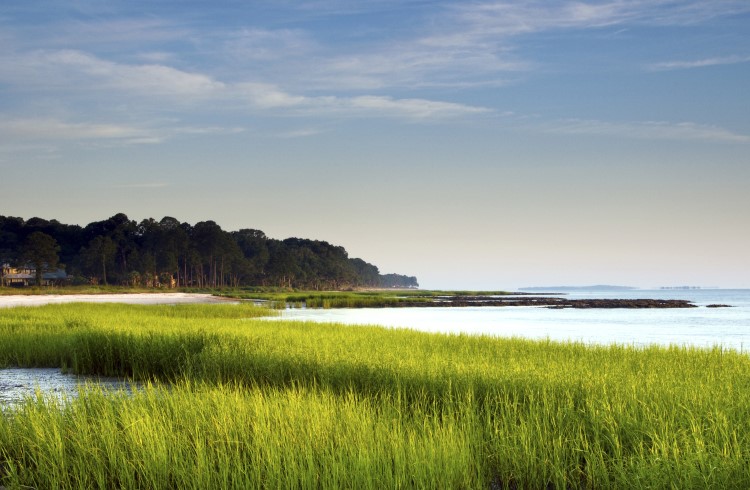 Photo © Getty Images / Rachid Dahnoun
Photo © Getty Images / Rachid Dahnoun
- History of the Gullah-Geechee
- A distinct, living culture
- The origins of “lowcountry” food
- Trip notes
Despite its dull label, the South Atlantic coastal plain is a place of decided wonder. As much air and water as solid ground, it’s more a state of mind than strictly mappable territory – a theater of weather, of scudding clouds, tenebrous skies, and sudden sunshine; its deck of dunes, salt marshes, estuaries, and islands constantly shuffled by wind and sea.
As it journeys 400mi (645km) south, from Pender County, North Carolina, to St John’s County, Florida, the plain attracts more poetic names: Tidewater, the Lowcountry, the Golden Isles. But whatever sentimental nomenclature clings to the region, it has an official designation, too, as a federal National Heritage Area, arguably the most important of its titles: the Gullah-Geechee Cultural Heritage Corridor.
History of the Gullah-Geechee
The Gullah – who in Georgia are better known as the Geechee – are descendants of the Central and West African slaves who were put to work in the cotton fields, rice paddies, and indigo plantations that made fortunes for the English colonists who settled the Corridor 300 years ago. On her father’s side, former First Lady Michelle Obama is descended from the Gullah. Her great-great grandfather, Jim Robinson, was a slave on Friendfield Plantation near Georgetown, South Carolina.
Laboring on large plantations in isolated, often inhospitable rural areas, with little oversight from their captors, the Gullah were able to develop a distinctive ethnic identity founded on a common language, faith, and shared cultural traditions.
Which stood them in good stead when, in 1861, just 11 months after South Carolina sparked the Civil War by seceding from the US, Hilton Head Island, a barrier island close to the Georgia border, fell to Federal troops after they mounted what would be the largest amphibious landing by US forces until D-Day.
Finding the slaves who had been abandoned there living in scandalous conditions, yet impressed by their comradeship, General Ormsby Mitchell confiscated Confederate land and gave it to the Gullah, along with the means to lay streets and build homes. The town, Mitchelville, named in honor of its benefactor, became the first self-governing settlement of freed African-Americans in the US.
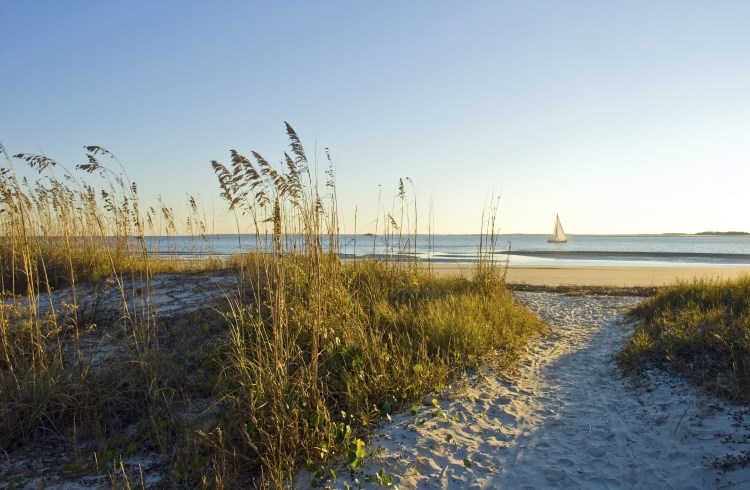
A distinct, living culture
Today, Hilton Head Island, which was developed in the ’50s as America’s first eco-resort, doesn’t give much of its history away, unless you know where to look. The patchwork of bridal-white sands, manicured fairways, and protected wetlands is equal parts postcard, playground, and preserve, but the Gullah’s influence can still be felt in the food, arts, and crafts there.
Take a Heritage Trail Tour of Gullah neighborhoods such as Stoney and Squire Pope, and the sweetgrass basket-making studio of Michael Smalls; then visit the Gullah Museum of Hilton Head Island, the physical manifestation of a not-for-profit organization that preserves culturally significant buildings, maintains a record of Gullah history, and puts on events, from food festivals and oyster roasts to benefits and Christmas concerts.
They say that the past is another country, but you can get there via Daufuskie Island, a largely unspoiled neighbor of Hilton Head that’s just 55mi (89km) by ferry and car to Savannah, Georgia. Walking dirt roads fringed by live oaks guarding antebellum mansions, I was given an introduction to The Way Things Used To Be by Sallie Anne Robinson, whose family have called themselves Islanders for six generations. Ebullient company, an authority on Gullah culture, a chef, author, and the model for a character in Pat Conroy’s bestselling novel The Water Is Wide, Sallie is the only native professional guide on Daufuskie.
To remember our history is to pay a tribute to those who came before us, but cultures don’t live in museums. Gullah culture is at its most vital when you don’t know it’s at work. In everyday dress and speech, for instance, or in song and worship. Even in exterior design. Visitors to South Carolina often note that householders paint their porch ceilings and window frames a soft pale – or “haint” – blue, a color the Gullah once thought served as a charm against ghosts (I say “once”, but many still believe in witchcraft – wudu or juju – and practice folk medicine).
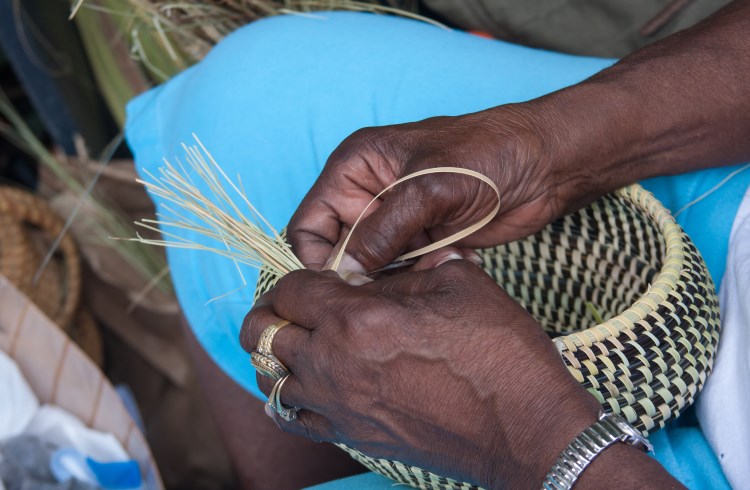
English-based but with many loanwords from African languages as varied as Wolof (from Senegal and Gambia), Kikongo (Congo) and Fon (Benin), Gullah is spoken by some 250,000 people today, up and down the Corridor. Two years ago, Harvard University offered Gullah-Geechee as a language class in its African language program, taught by Sunn m'Cheaux, a native-speaker from Charleston, South Carolina.
Gullah is an intensely musical language that lends itself to performance, on the stage and in church. In both settings, I have seen the McIntosh County Shouters, “master artists of the authentic ring shout,” reduce Savannah audiences to tears and palpitations. Part dance, part call-and-response song, the “shout” is an ecstatic, transcendental religious experience, which, in admittedly somewhat bastardized form, has been adopted by the Mardi Gras Indians of New Orleans.
The Gullah are also great storytellers, having passed down a talent for showmanship and a rich stock of ballads, fables, and trickster tales, often with an animal motif. The Georgia writer Joel Chandler Harris leant heavily on these stories in his Uncle Remus/Brer Rabbit books.
The origins of “lowcountry” food
The Gullah’s biggest impact on mainstream culture is food – and nowhere is that more obvious than Charleston, the 11th oldest city in the US, which has been kind of a big deal on the gastronomic front for at least a decade, but has recently been showered with plaudits as tastes have turned to what it does best: highly sophisticated soul food. Also known as “Lowcountry cuisine”, this is inarguably a Gullah creation.
I went to “Chucktown” to taste for myself, and to speak to BJ Dennis, a personal chef and caterer of Gullah descent, about his people’s legacy.
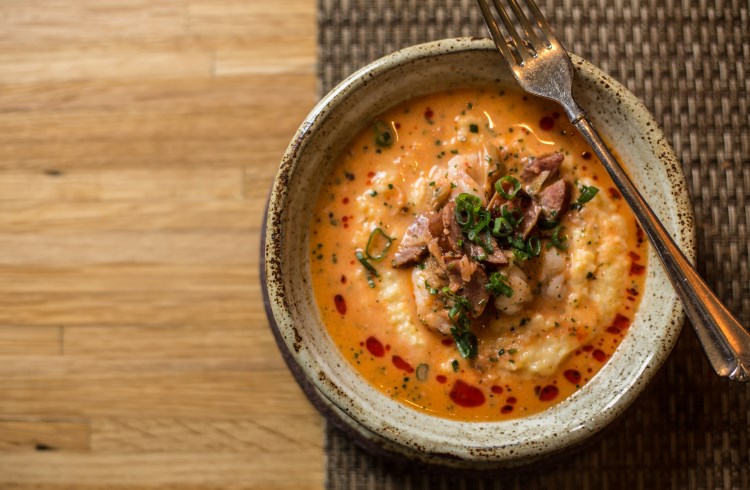
“We live close to the earth here,” he said. “We interact with our environment, and feel a spiritual connection with it. It is beautiful, fertile country, teeming with wildlife. We grow our own vegetables and are keen fishermen. Lowcountry cooking differs from other southern cooking because seasonality and seafood are central to it, but make no mistake, however fancy people make it, we, the African diaspora, gave it to Charleston. You must remember that as well as preparing meals for each other, the Gullah did all the cooking in the planters’ grand homes, adapting our incredible larder to European culinary techniques.”
I ate stupendously well in Charleston. In great restaurants housed in a jaw-dropping collection of colonial, Georgian, Regency, Italianate, Gothic revival, and Queen Anne buildings. I thoughtfully chomped my way through posh shrimp and grits, with scallops and lobster butter sauce; cornmeal-fried catfish with Carolina gold rice purloo; oysters, littleneck clams, and king mackerel. It was high dining, for sure, but Gullah through and through, like the big tables provided for communal eating – because, as one waiter told me, his hand almost on my shoulder: “There’s more to a night out than your own company.”
The wisdom of that comment was picked out in neon for me at the James Beard award-winning Bertha’s Kitchen the following night. BJ had recommended the family-owned meat-and-three establishment, and they found me a spot at very short notice, “So long as you don’t mind sitting with a birthday party.” The menu was plain-speaking – pork chops, lima beans, okra stew, collard greens – but the eating was anything but: complex, deeply flavored, driven by dark roux and no small amount of, well, love. By the end of the evening I was wearing a paper hat, blowing candles out on a second cake, and arranging to meet my new family for lunchtime drinks, because that’s the way they do things ‘round there: the Gullah way.
Trip notes
Charleston and Hilton Head, in South Carolina, and Savannah, in Georgia, are the best places to sample all aspects of Gullah culture. The Corridor tends toward the sultry in summer, but spring and fall are long, and the sea is swimmably warm as late as September.
Related articles
Simple and flexible travel insurance
You can buy at home or while traveling, and claim online from anywhere in the world. With 150+ adventure activities covered and 24/7 emergency assistance.
Get a quote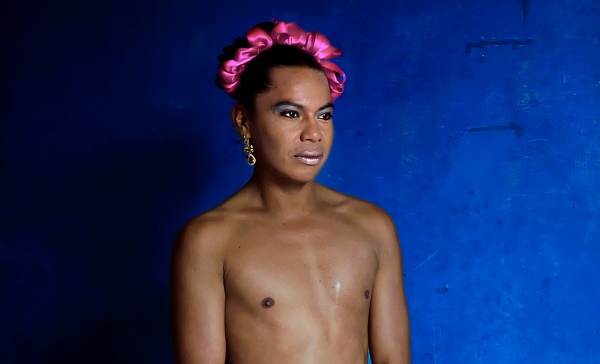
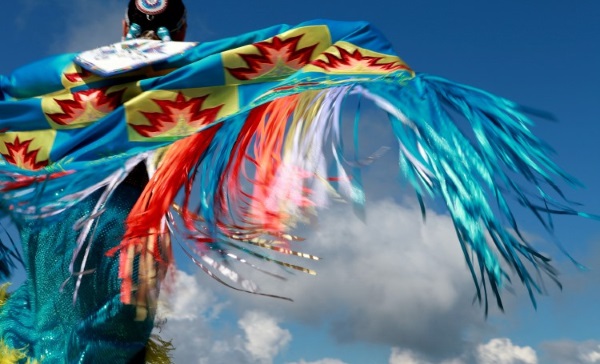

No Comments